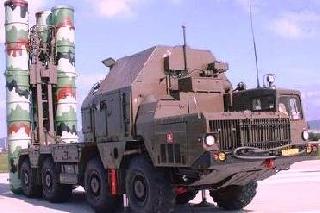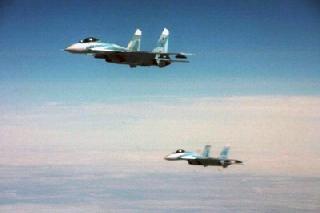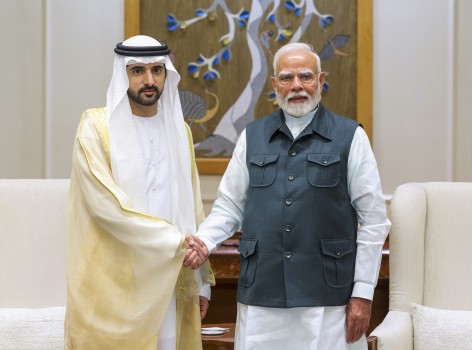
S-300 air defence missile systems. Afile photo.
MOSCOW (PTI): Russia Wednesday said it had deployed its potent S-300 air defence missile systems in Georgia's self declared independent province of Abkhazia, infuriating its arch foes in Tbilisi, which sees it as threat to regional stability and NATO.
"We have deployed the S-300 systems in Abkhazia to protect its and South Ossetian airspace in conjunction with other air defence weapons deployed by the Land Forces," Russian Air Chief Col. Gen. Alexander Zelin was quoted as saying by the Russian agencies.
He said that the air defence assets deployed in the two breakaway Georgian republics will also help to prevent any violation of Russian airspace and destroy any airborne "intruders" regardless of their purpose.
Gen. Zelin did not specify the number and type of the S-300 missile system deployed in Abkhazia.
"The deployment of this class of air defence systems is not only aimed against Georgia, it also changes the balance of forces in the region," Georgia's State Minister for Reintegration Temur Yakobashvili was quoted as saying by RIA Novosti.
Yakobashvili declared that Russia's actions were also aimed against US-led NATO and said Georgia would protest the S-300 deployment in international organisations.
After five-day war with Georgia in response to its re-establish control over the two breakaway regions in August 2008, Russia recognised independence of Abkhazia and South Ossetia and inked treaties to set up military bases in the former Georgian republics.
The two Russian military bases are located in Gudauta, Abkhazia and in South Ossetia's capital Tskhinvali.
Each base is likely to host up to 1700 servicemen, T-62 tanks, light armoured vehicles, air defence systems and various aircraft.
Tbilisi considers Abkhazia and South Ossetia as "Russian occupied territories".
 Previous Article
Previous Article












The Indian Air Force, in its flight trials evaluation report submitted before the Defence Ministry l..
view articleAn insight into the Medium Multi-Role Combat Aircraft competition...
view articleSky enthusiasts can now spot the International Space Station (ISS) commanded by Indian-American astr..
view article